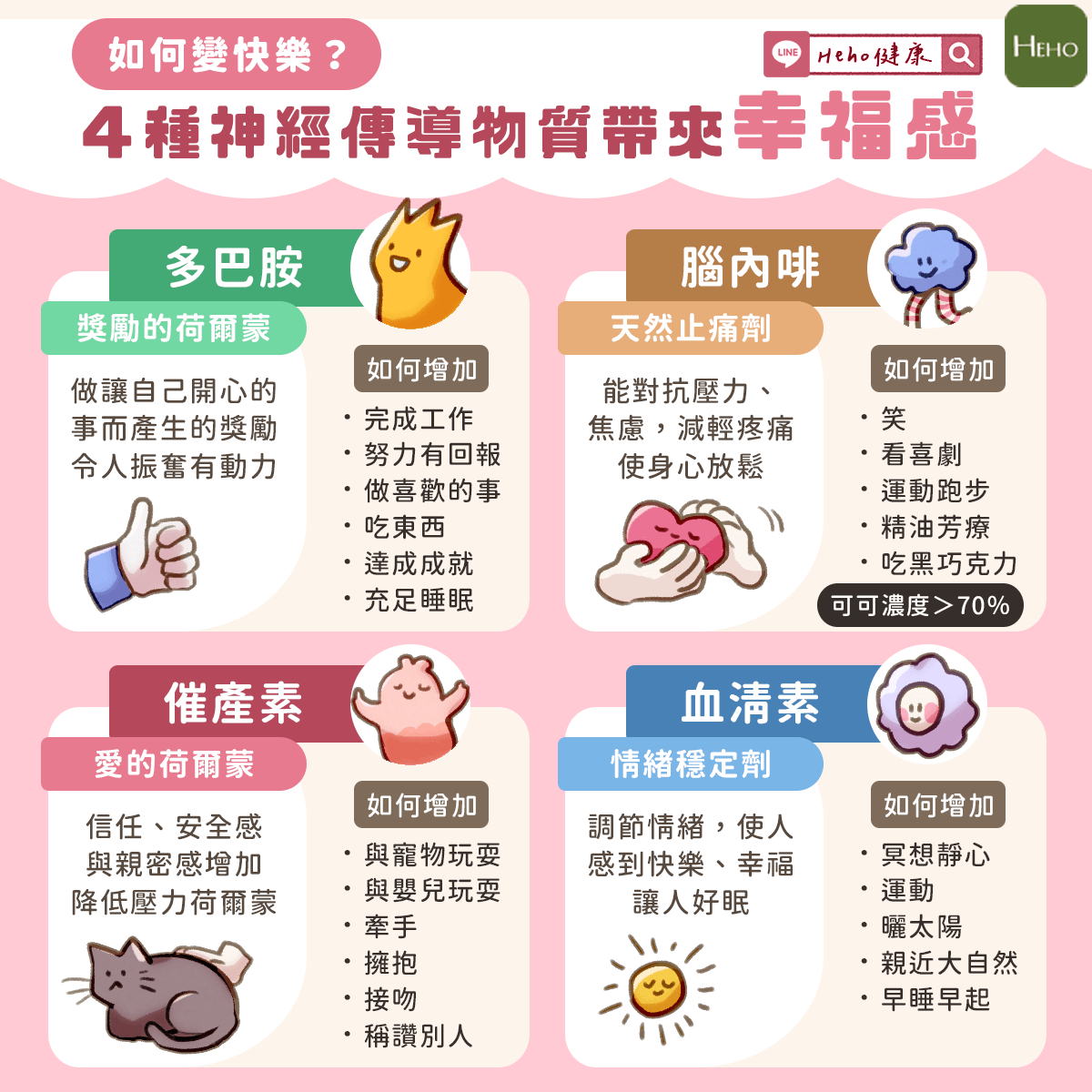Everyone experiences happiness differently. Some people feel joy from achieving success, while others find delight in hugging their pets. To become happier, besides adjusting your schedule, diet, and exercising more, you should try to increase the "neurotransmitters" that deliver happiness signals in your brain. Understanding these four different neurotransmitters can help you grasp those subtle chemical reactions and make yourself a bit happier! 4 neurotransmitters will bring a sense of happiness. (Photo/Heho Health)
4 neurotransmitters will bring a sense of happiness. (Photo/Heho Health)
Four Neurotransmitters that Bring Happiness
Dopamine
Also known as the "reward hormone," dopamine is produced when you do something that makes you happy, giving you a sense of excitement and motivation.
How to Increase: Completing tasks, achieving goals, doing what you love, eating, exercising, getting enough sleep, receiving rewards for your efforts, achieving small milestones, listening to music, and getting a massage. 4 neurotransmitters can induce feelings of happiness. (Photo/Heho Health)
4 neurotransmitters can induce feelings of happiness. (Photo/Heho Health)
Endorphins
Also known as endorphin or brain morphine, endorphins are natural painkillers that help combat stress and anxiety, reduce the sensation of pain, and induce relaxation.
How to Increase: Laughing, watching comedies, eating dark chocolate (cocoa content > 70%), aromatherapy, running, engaging in sexual activity, and practicing yoga.
Oxytocin
Known as the "love hormone," oxytocin can reduce the stress hormone cortisol, making you feel happy and relaxed. This hormone is often released when interacting with close relationships, inducing feelings of joy.
How to Increase: Engaging with pets, interacting with babies, holding hands, hugging, kissing, and complimenting others.
Serotonin
As a "mood stabilizer", it affects a variety of physical and emotional operations, such as regulating the biological clock, body temperature, appetite or hunger, learning and memory, cognitive function, sleep quality, emotional control, and our tolerance to stress. Degrees are all controlled by serotonin. It can regulate emotions and make people feel happy and happy.
How to Increase: meditate, run, swim, ride a bicycle, bask in the sun, get close to nature, go to bed early and get up early







